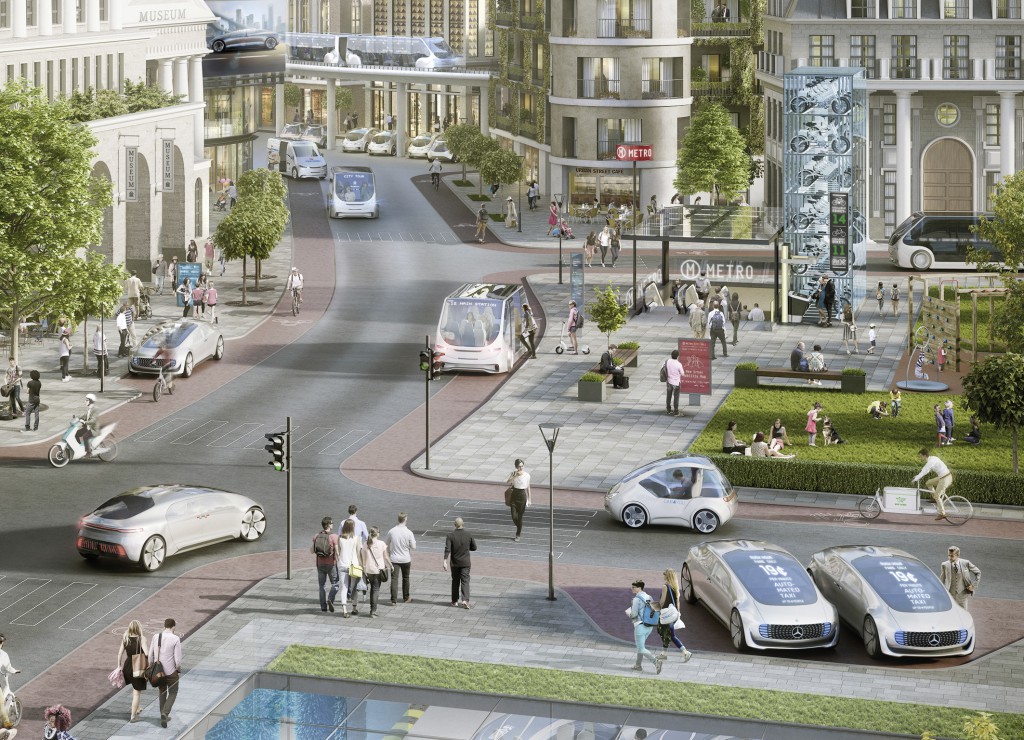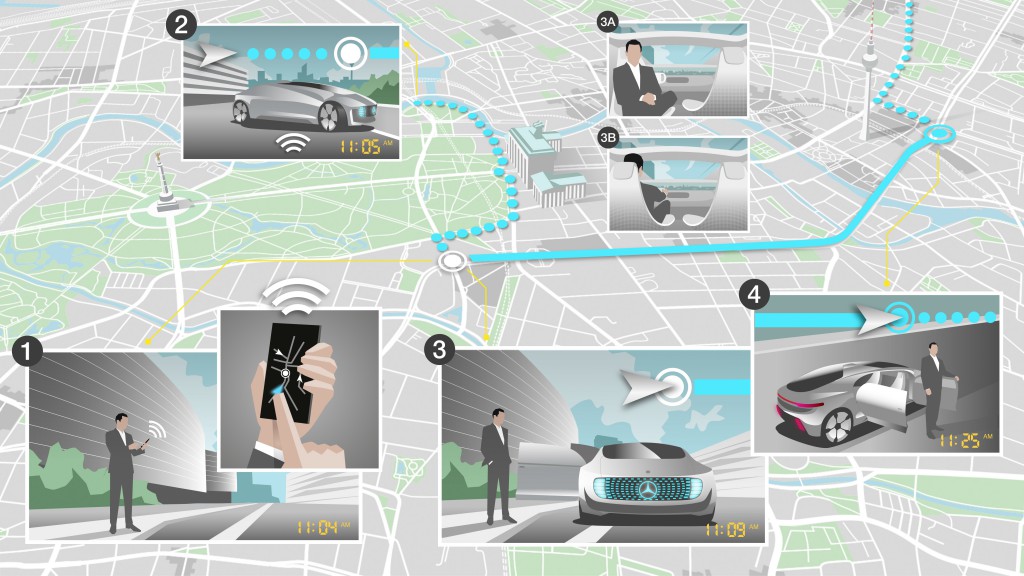Share This
Related Posts
Tags
Self-Driving Taxis
By Anca Gagiuc on May 13, 2017 in News, Technology
Once found only in science fiction, self-driving cars are about to show up on a street near you.

Goldman Sachs estimates that the market for advanced driver assistance and autonomous vehicles is expected to grow from roughly $3 billion in 2015 to $96 billion in 2025 and balloon to $290 billion in 2035.
When two giants meet and start planning together, the world expects great things. One such collaboration, between Daimler — the world’s largest maker of premium cars, and Bosch — the world’s largest automotive supplier, is poised to bring a major change to the auto industry. The two companies are teaming up to develop self-driving cars and speed up the normalization of “robo-taxis.”
The fully automated vehicle is planned to be ready for use in urban markets in the early 2020s, the companies say. The autonomous driving system will be designed for city driving. The expectation is that self-driving taxis will improve traffic flows in cities and road safety.
The development alliance is on a mission to create a system for fully automated Level 4 and driverless Level 5 vehicles. The Society of Automotive Engineers has defined five levels of driving automation: Level 4 means the car assumes all of the driving in many conditions — it could drive fully autonomously in specific geographic locations, such as a certain route in a city center, or in certain weather conditions. Level 5 is reached when the vehicle can operate in all conditions, without requiring any human intervention at any time.
Daimler, through its passenger car brand Mercedes-Benz, has been working on autonomous vehicles for years. At the same time, the company keeps a close eye on the growing group of people who would rather use public transportation and car-sharing than own a car. The carmaker operates a car-sharing company called car2go and invested in transportation apps, such as route planner RideScout, Mytaxi and GlobeSherpa.
Bosch, on the other hand, has seen a boost in the automotive-driven mobility business unit thanks to customers like Google, Tesla and Porsche. Demand for driver assistance, safety features, connected and electric cars have been the main drivers for the company’s sales division. Lately, it has been busy building connections—Nvidia is one of the most prominent ones as it also has an existing relationship with Mercedes-Benz. Many are curious to see if a three-way venture will come out of it.
It’s interesting to watch how both traditional automakers and Silicon Valley startups rally towards self-driving success.
What are your thoughts about the advances in automated autos? Would you feel comfortable if a robo-taxi picked you up in a major city?

Future mobility: Within a specified area of town, users will be able to use their smartphone to order a car sharing car or robot taxi. The vehicle will then make its way autonomously to the user and the onward journey can commence.
